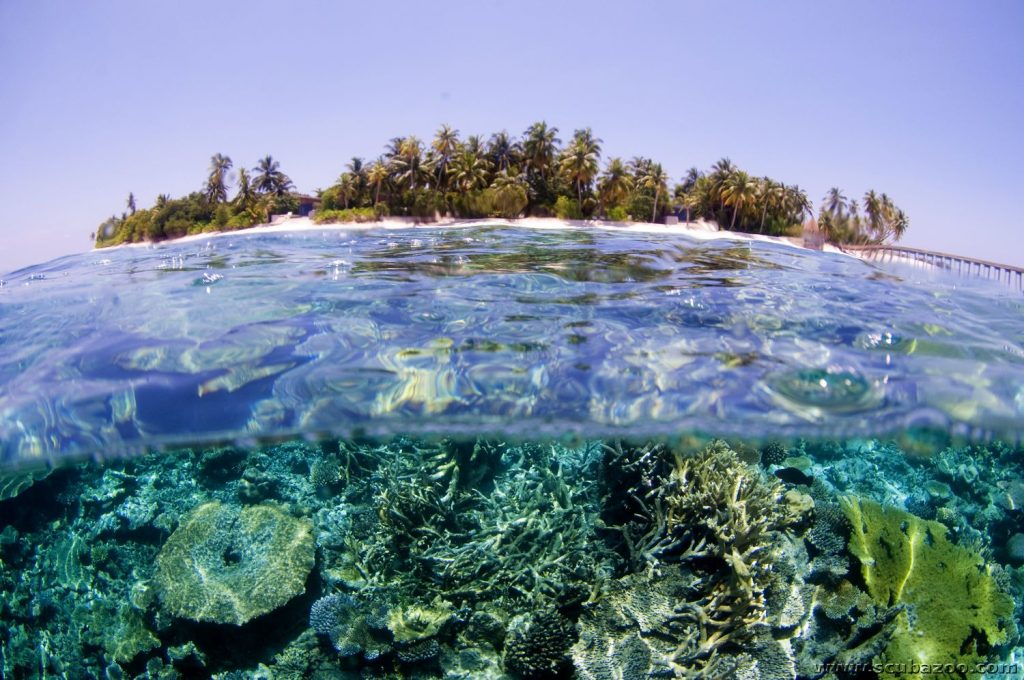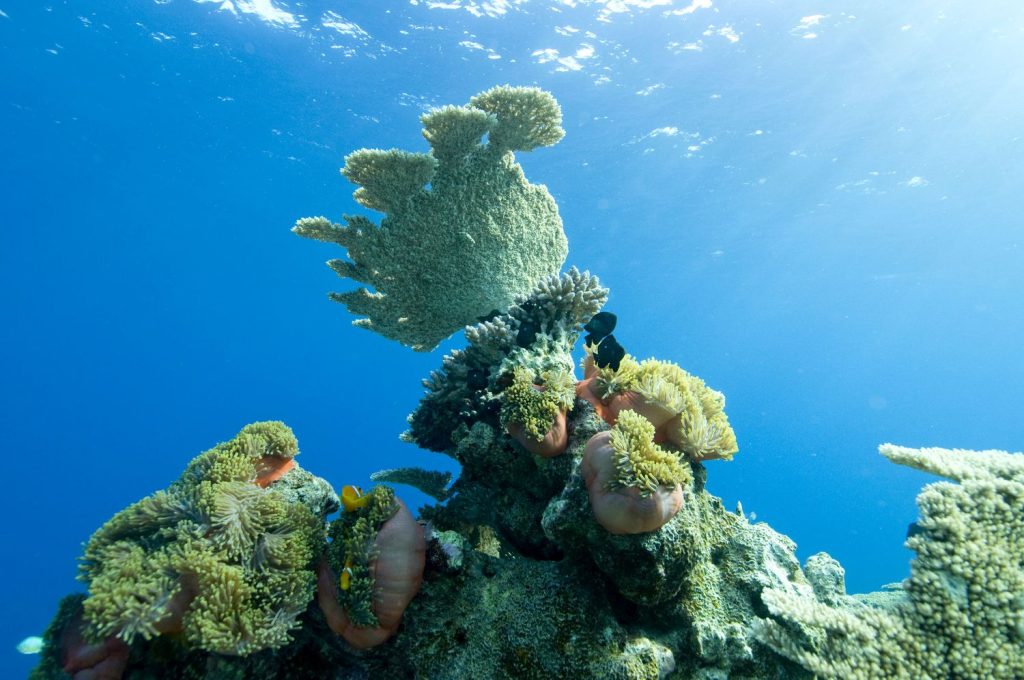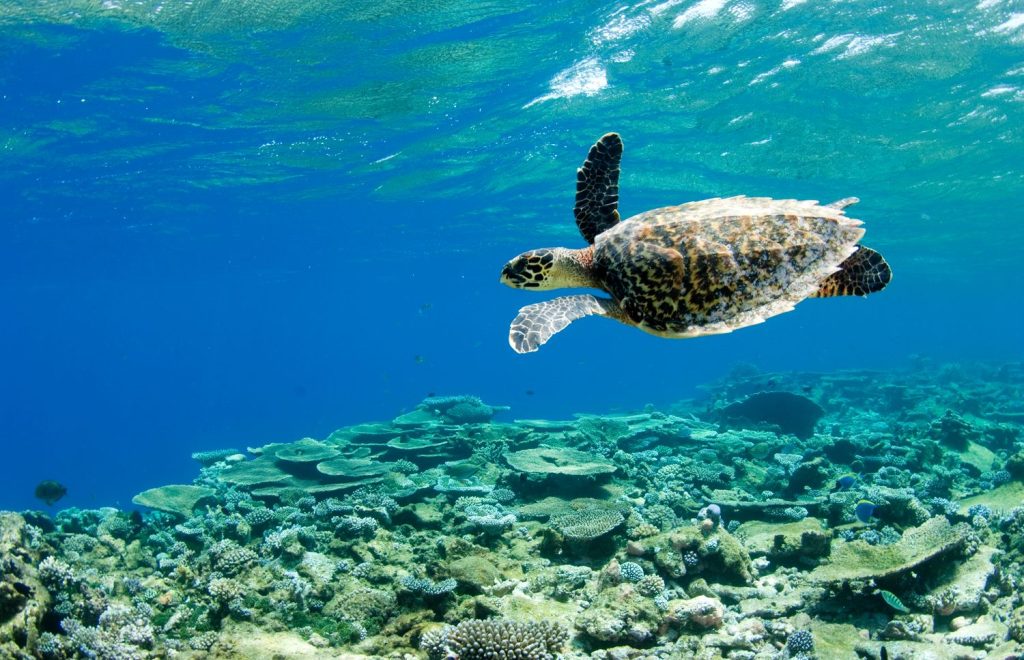Snorkeling in Maldives

The Maldives offers a world-class snorkeling experience with its crystal-clear waters and abundant marine life. When you plan your snorkeling adventure in the Maldives, consider the following aspects:
- Best Time to Snorkel: You can snorkel in the Maldives year-round due to its tropical climate. During the dry season from December to April, visibility is at its peak, allowing you the best views of the vibrant marine life.
- Water Temperature: Expect water temperatures to range from 80 to 86 degrees Fahrenheit, allowing for comfortable snorkeling without the need for a wetsuit.
- Marine Life: Among the 2500 reefs, you’ll find around 900 house reefs brimming with diverse fish, including the endemic Maldive anemonefish and thriving coral formations.
Key Tips
- Safety: Always snorkel with a buddy and be mindful of currents.
- Respect Marine Life: Enjoy observing but do not touch or disturb the underwater environment.
Snorkeling Spots
- North Male Atoll: Offers extensive coral reefs with popular sites such as the Banana Reef.
- South Male Atoll: Also known for exceptional snorkeling locations.
By acknowledging these pointers, your snorkeling trip in the Maldives can be both exhilarating and respectful toward the delicate marine ecosystem you’ll be exploring. Enjoy the underwater spectacle responsibly.
Best Times for Snorkeling in Maldives

For the best snorkeling experience consider the seasonal variations that affect weather conditions, marine life visibility, and tourist seasons.
Weather Conditions
Dry Season (December to April):
- Ideal for calm seas and clear skies.
- Optimal for snorkeling due to minimal rainfall.
Wet Season (May to November):
- More rainfall and potentially rougher seas.
- Some areas offer great visibility even during this period.
Marine Life Visibility
Peak Manta Ray Season:
- December to April, particularly around Manta Point at Lankanfinolhu Island.
Visibility Factors:
- Clear water is typical from late May to July, enhancing encounters with diverse marine species.
Tourist Seasons
High Season (Dry Season):
- Crowds peak from December to April.
- Snorkeling sites can be busy; early morning trips advised.
Low Season (Wet Season):
- Fewer tourists from May to November.
- Possible to enjoy quieter snorkeling spot.
Choosing Snorkeling Locations

When planning your snorkeling adventure in the Maldives, selecting a good location is essential to enhance your underwater experience. Consider some famous atolls and islands, house reefs, and the resorts that cater specifically to snorkelers.
Atolls and Islands
- Ari Atoll: Renowned for diverse marine life and clear waters. Ideal for spotting sharks and rays.
- Male Atoll: Offers a variety of snorkeling spots that are just a short boat ride from Malé, including:
- Furanafushi
- Dhonveli
- Kuda Huraa
- Kanifinolhu
- Giraavaru
House Reefs
House reefs are coral formations directly accessible from the shore of an island. Look for:
- Accessibility: House reefs with minimal currents and easy entry points.
- Marine Biodiversity: Reefs teeming with fish, turtles, and corals.
Snorkeling Resorts
All resorts in the Maldives cater to snorkeling enthusiasts with inclusive packages. Prioritize:
- Find Resorts with Rich House Reefs: Baros Maldives Island Resort is noted for its vibrant reefs and marine life.
- Resort-Specific Snorkeling Tours: Some offer unique snorkeling tours as part of their service.
Safety Measures and Guidelines
When snorkeling, your safety depends on understanding the local conditions (sea current, wind and tides), using proper equipment, and respecting marine life.
Currents and Tides
Be aware that the strength of currents and tides can vary widely across different locations in the Maldives. Always:
- Check the local tide charts and current conditions before entering the water.
- Snorkel with a buddy or in the presence of a trained guide, especially if you’re unfamiliar with the area.
Snorkeling Equipment
Utilize well-fitting, quality snorkeling gear to ensure your safety and comfort. Remember to:
- Inspect your mask, snorkel, and fins for proper fit and function before each use.
- Clean your equipment after each snorkeling session to maintain its condition.
Marine Life Interaction
Interactions with marine life should be approached with caution and respect. Adhere to these guidelines:
- Observe marine life without touching, chasing, or feeding them to avoid causing stress or harm to the animals and to yourself.
- Stay informed about potentially dangerous species of fish and corals native to the Maldives and maintain a safe distance at all times.
Environmental Considerations
When snorkeling in the Maldives, your impact on the environment should be a paramount concern. The region’s coral reefs and marine life are delicate ecosystems that require responsible snorkeling practices to maintain their health and vitality.
Mindful Interaction:
- Avoid touching or stepping on coral. Your contact can damage fragile coral structures.
- Do not disturb marine wildlife. Keep a respectful distance to avoid causing stress to the creatures.
Protect the Water:
- Use reef-safe sunscreen. Chemicals found in some sunscreens can harm coral and marine life.
- Never litter. Ensure all your waste is taken back to the boat or resort.
Support Conservation Efforts:
- Patronize eco-friendly operators who contribute to reef preservation.
- Participate in marine conservation activities if available.
Be Informed:
- Educate yourself about local environmental laws and guidelines.
- Stay updated on the area’s current environmental challenges and how you can help.
By following these guidelines, you can enjoy the unparalleled snorkeling experience the Maldives offers while preserving its natural beauty for future generations.
Tips for Beginners
When you decide to embark on your snorkeling journey in the Maldives, keep the following tips in mind to ensure a safe and enjoyable experience:
- Equip Properly: Invest in a good quality snorkeling mask that fits comfortably; avoiding water leakage is key. A snug-fit fin contributes to efficient swimming without causing cramps or discomfort.
- Respect Marine Life: Remember that you’re a visitor in the underwater world. Avoid touching the coral or marine creatures, as it can damage the delicate ecosystem or potentially cause you harm.
Safety Checklist
- Always snorkel with a buddy.
- Check weather conditions before heading out.
- Know your limits and don’t over-exert yourself.
Health Precautions
- Apply water-resistant sunscreen to protect your skin from sunburn.
- Stay hydrated, but avoid snorkeling immediately after a full meal.
Underwater Photography
When venturing into the waters of the Maldives, the opportunity for underwater photography is exceptional. South Male Atoll, in particular, boasts clear waters and an abundance of marine life, making it an ideal location for capturing stunning images beneath the waves. All you need is a waterproof phone case.
| Snorkeling Site | Highlights |
|---|---|
| Filitheyo Island Resort | Home to a colourful house reef and diverse marine life |
| Cocoa Thila (Cocoa Corner) | Known for cavernous topography and shark sightings |
Local Regulations and Customs
When snorkeling in the Maldives, it’s essential to understand and respect local regulations and customs to ensure a harmonious experience. As a predominantly Muslim country, the Maldives has specific customs that visitors should be aware of:
- Respectful Dressing: When on local islands, dress conservatively out of the water. Swimwear is acceptable at the resort islands, but cover up when you’re not on the beach or in your resort.
- Alcohol Consumption: It’s illegal to bring alcohol into the country and to consume it on local islands. However, resorts on private islands serve alcoholic beverages to their guests.
Here are some guidelines on marine regulations:
- No Touching Marine Life: Never touch or stand on coral reefs or any other marine life; they’re fragile and easily damaged.
- Littering: It’s prohibited to litter in the ocean. Dispose of your trash responsibly on land.
- Feeding Fish: Feeding fish or other marine animals is discouraged as it can disrupt their natural diet and behavior.
- Souvenirs: Collecting shells or coral as souvenirs is not allowed. Taking these items can harm the ecosystem.
Remember, while snorkeling:
- Adhere to Guides: Follow the guidance of your snorkeling instructors or local guides.
- Use of Safety Vests: Non-swimmers or children should use snorkeling vests for safety.
Respecting these practices ensures that you contribute to the sustainability of the Maldives’ marine environments and comply with local customs.